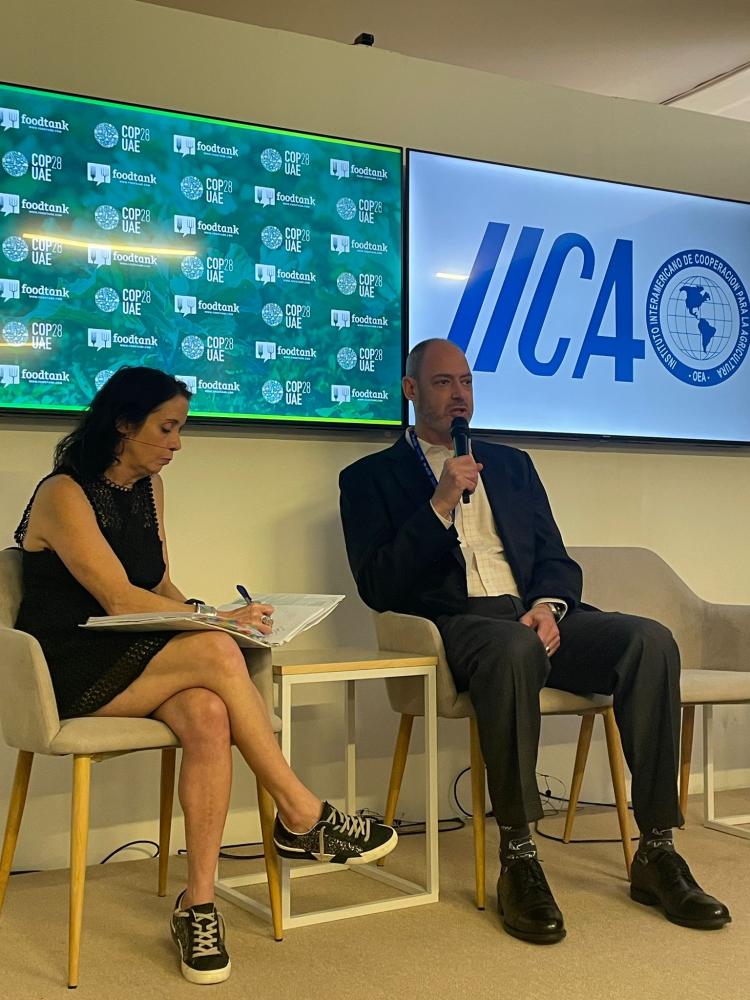Climate Change Conference: The North American meat industry came to Dubai to report on progress made in measuring and mitigating climate change impact

Dubai, United Arab Emirates, xx December 2023 (IICA) – The North American meat industry came to the United Nations Climate Change Conference (COP28) to report on the work it has been doing to measure its environmental impact and to establish its position amidst the ongoing debate on agrifood system transformation.
The North American Meat Institute (NAMI) represents companies that process 95% of the red meat and most of the poultry produced in the United States. It is the largest industrial trade association representing processors of beef, pork, mutton, veal and chicken and its members make an invaluable contribution to global food and nutritional security. The NAMI has its headquarters in Washington and is comprised of more than 350 member companies that operate approximately 800 plants supervised by the United States Department of Agriculture.
The institution has members in Canada and Mexico, as well as the United States, and is working assiduously to develop greenhouse gas inventories and other tools to provide precise and verifiable information about the environmental footprint of meat production and industry. In this way it is demonstrating its commitment to the climate change mitigation and adaptation goals assumed by the international community under the 2015 Paris Agreement.
The organization is part of the Protein PACT for the People, Animals and Climate of Tomorrow, one of the partners of the Inter-American Institute for Cooperation on Agriculture (IICA) in the Home of Sustainable Agriculture of the Americas pavilion. The pavilion, which has been installed at COP28 in the United Arab Emirates, is the venue of debates at the highest level regarding the role of the region’s agriculture sector in global climate change mitigation and adaptation efforts.
Collaboration in decision-making
Eric Mittenthal, Chief Strategy Officer at the NAMI, remarked that, “Over the years, agrifood systems are becoming the subject of increased discussion at COP and the importance of animal protein is a popular topic of conversation. It was very important for us to be here to share the work that we have been doing. We have taken monumental steps to measure our environmental impact and to explain the contribution we make to a healthy diet”.
“If we were not here, decisions would be taken without us. Therefore, our presence represents a step forward. We have seen that on other occasions, courses of action have been chosen based on assumptions about the environmental impact of the meat production and industrial sector that are not necessarily true. We are here to share information and collaborate”, he added.
Mittenthal expressed the view that the Western Hemisphere plays a critical role in feeding the world’s population and therefore the role of IICA is critical in sharing information about the reality of the production models in the Americas and in giving a voice to the countries.
In closing, he remarked that, “We are proud to collaborate with IICA, which in our view is a bridge to the other countries in the hemisphere and a vital tool for sharing and disseminating experiences. Despite the diverse means of production in our region, we are certain that examples from our industry can be replicated and we can also learn from others”.
More information:
Institutional Communication Division.
comunicacion.institucional@iica.int